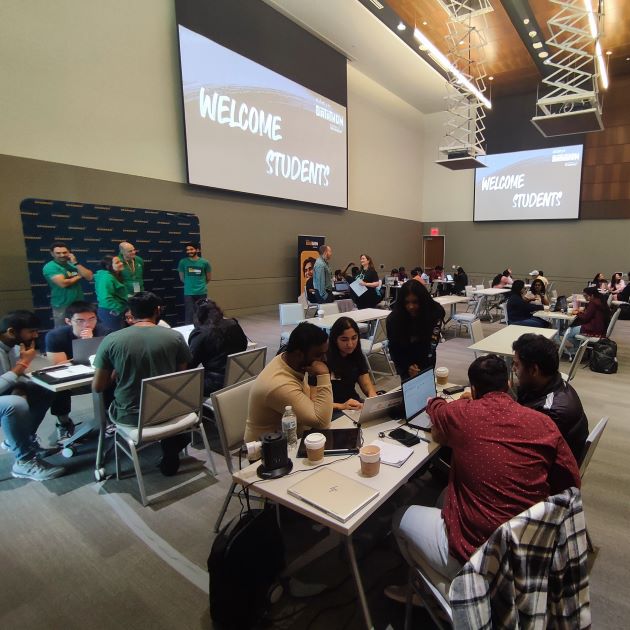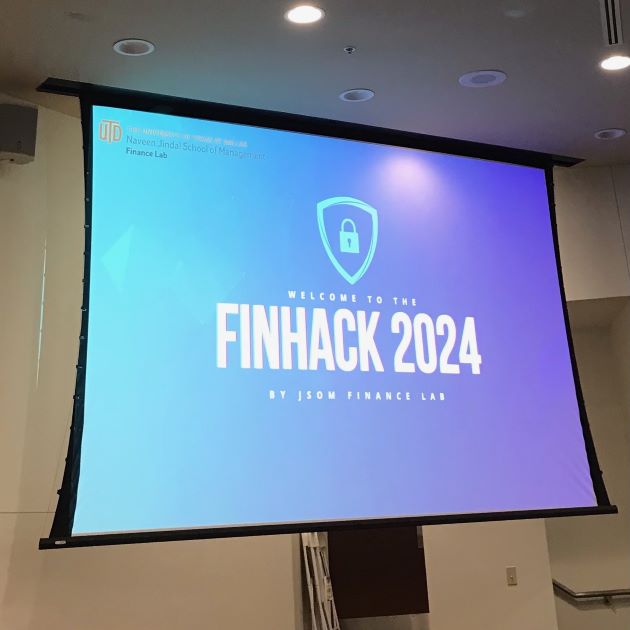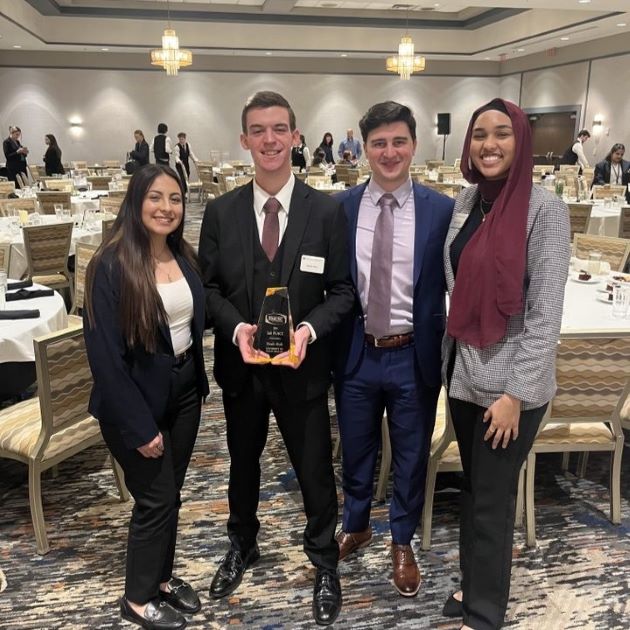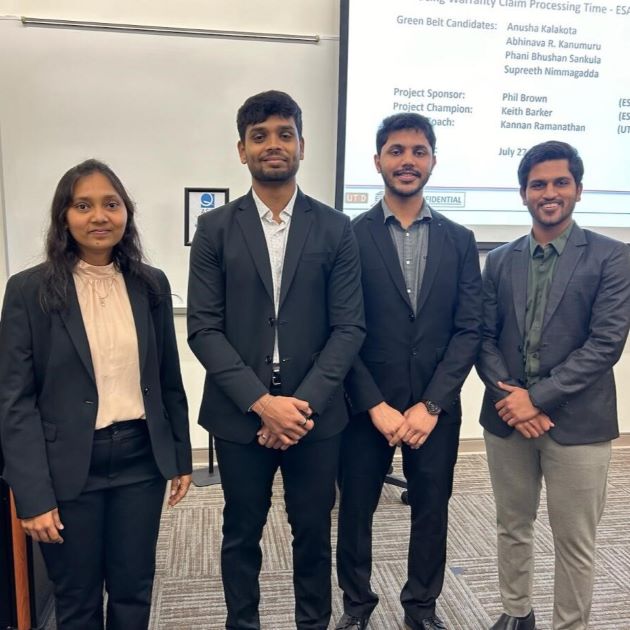A recent Naveen Jindal School of Management graduate concluded his degree program by winning a fellowship that enables him to carry out original research in machine learning, a branch of artificial intelligence.
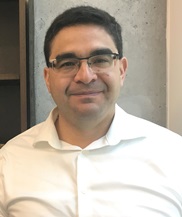
Gabriel Castaneda learned that the Global Association of Risk Professionals had awarded him a 2018 GARP Risk Education Research Fellowship on Dec. 21, three days after he earned his MS in Finance degree.
Castaneda submitted his winning proposal, “Electricity Load Forecasting Using Machine Learning and Air Thermodynamics Applied to New York City,” last fall.
For the fellowship, he is mining data on electricity demand and weather conditions for New York City from 2010 to 2017 and applying various mathematical models — algorithms — to find patterns and infer behavior in order to develop a new predictive model for forecasting how much electricity will be used in the future.
Such forecasting could help electricity companies predict potential demand, avoid price volatility and gain some market advantage, Castaneda said. “If you know how much electricity you will need in a week, if you know the demand you will have in a week, then you can shop around and get a better price.”
GARP reviewers who approved his proposal recommended he frame his work in the context of managing load and price risk in the wholesale electricity market. They also recommended he study how machine learning can be used to improve load forecasting and reduce risk.
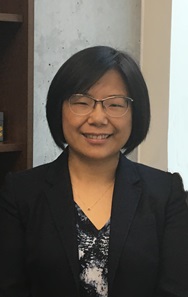
Castaneda has tapped Dr. Liping Ma to serve as his research advisor. He sought her out, he said, because “she has good record of students getting the grant.”
Ma is a JSOM clinical assistant professor of finance and managerial economics, and Castaneda is the fourth student of hers to win a GARP Fellowship in the past three years. In 2016, Kamiar Kordi, MS in Finance ’16, won, and in 2017, working as a team, Ndackyssa Oyima-Antseleve, then an MS in Finance student and now a management science PhD student, and Nam Nguyen, MS in Finance ’17, won.
Ma has put fellowship recipients on the path to success in Numerical and Statistical Methods in Finance (FIN 6382).
“In that course, we teach the students statistical models and how to apply them in financial problems that incorporate finance and risk management,” Ma said. “This gives the students some incentives to extend their in-class knowledge to real-world practice. … They also learn how to initiate and manage a project. So that is why I ask them to apply for the GARP Fellowship.”
The contest challenges master’s students to develop original research relevant to the global financial-risk-management community. Up to six winners each receive a $3,000 stipend to complete a six-month project overseen by an advisor, present results in a paper, share the paper in a GARP research series and, potentially, present the paper at a GARP event.
Castaneda said the electricity load-forecasting research he is now conducting has “very similar” parameters to the required class project he did in Ma’s course.
Castaneda is studying New York City because the New York Independent System Operator, a not-for-profit independent organization that manages New York’s electric grid and it wholesale electricity marketplace, keeps a wide range of data and makes it available to use for free.
Castaneda periodically checks in with Ma, who said that he needs “to take a look at the data and try a bunch of models, not just one model. … You feed the data into many models and compare the results to see which [model] is optimal.”
After combining different data parameters, algorithms and software, Castaneda will eventually write a code in Python/R to analyze results and — on the machine learning side — forecast future use, Ma said.
Castaneda, who likes mathematical methods and statistics, finds this kind of financial data science very appealing. And the topic is appealing because he is a chemical engineer who has worked in oil and gas and known its role in producing electricity.
While he liked the numbers side of oil and gas, Castaneda said he was prompted to move into finance because “finance is quicker. Finance works a lot more with the newest technology. I’m looking for something that takes finance and works at a faster pace…”
“And,” Ma concluded for him, “incorporates the new technology quickly.”

